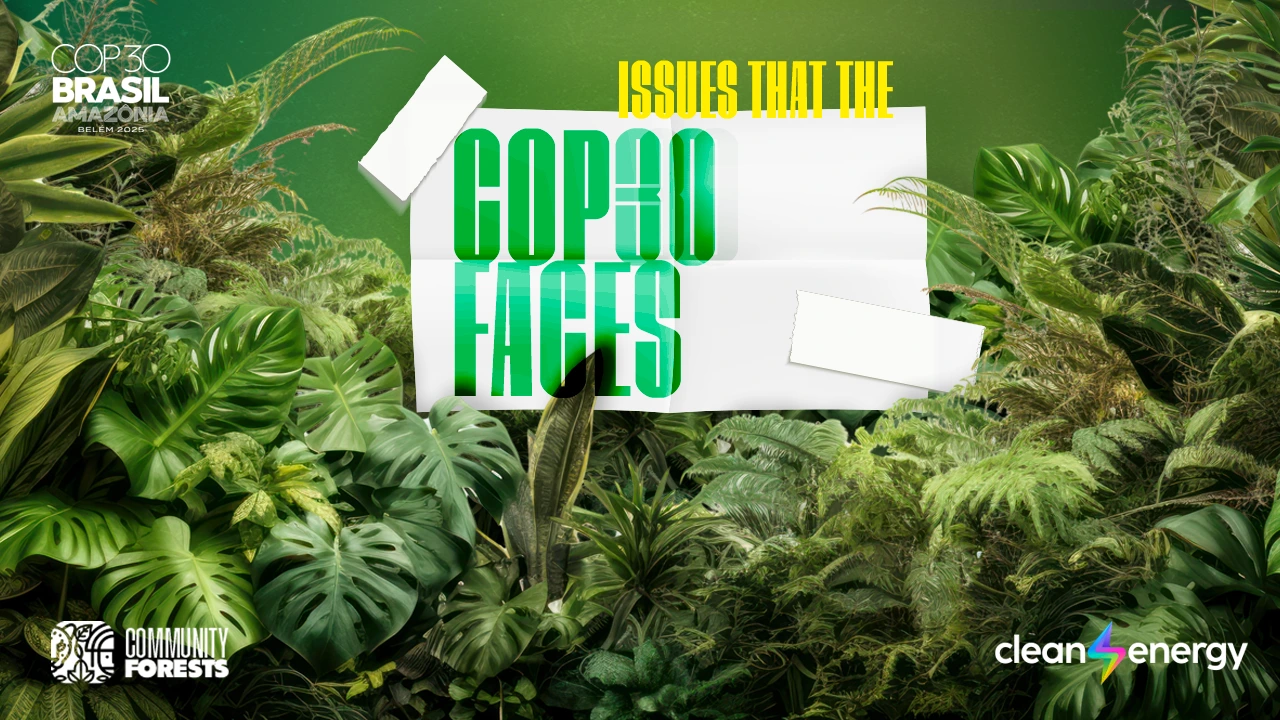COP30, to be held in Belém, Brazil, in November 2025, has among its main priorities addressing urgent environmental issues resulting from climate change, ecological degradation, and territorial inequalities. Below are the key challenges it seeks to address:
Deforestation and biodiversity loss
In the Amazon, the host region of COP30, deforestation remains critical, caused both by fires and human activities such as agriculture and cattle ranching. The declared commitment includes achieving zero deforestation by 2030.
COP30 also seeks to protect indigenous territories and local ecosystems as a key strategy to conserve biodiversity.
Climate change adaptation and vulnerability
The impacts of climate change are already strongly felt: extreme weather events, floods, droughts, and disruptions to agricultural cycles. COP30 highlights adaptation and the need to strengthen local climate resilience.
It also seeks to define global indicators for the Global Goal on Adaptation (GGA).
Emissions and energy transition
Greenhouse gas emissions remain the primary driver of global warming. For this reason, COP30 emphasizes a just energy transition, the progressive phase-out of fossil fuels, energy efficiency, renewable energy, sustainable transport, and reducing emissions across key sectors.
Ecosystem services, soils, water, and healthy ecosystems
Protecting forests, rivers, watersheds, and local ecosystems that provide vital services such as water, local climate regulation, pollination, and temperature control is another central goal. COP30 also seeks to curb water pollution, unmanaged waste, and damage to sensitive ecosystems.
Climate justice, indigenous inclusion, and territorial governance
The communities most vulnerable to climate change—indigenous peoples, local populations, and rural areas—are often the most affected yet the least heard. COP30 seeks to ensure their participation in decision-making, protect their territories, respect traditional knowledge, and guarantee a fair distribution of climate action costs and benefits.
Climate finance and support mechanisms
Many countries and communities lack the resources to implement adaptation, ecological restoration, or energy transition measures. COP30 promotes financial commitments, clear pathways to mobilize international resources, and mechanisms that do not further indebt vulnerable nations, with transparency and accountability.
COP30 represents a decisive opportunity to advance environmental protection in the context of a global climate crisis. The challenges it seeks to address—deforestation, biodiversity loss, emissions, community vulnerability, ecosystem degradation, and unequal participation—are deeply interconnected, requiring integrated approaches. While political commitments are on the table, the greatest challenge will be to turn them into concrete, measurable, and equitable actions. Only by mobilizing adequate finance, incorporating local voices, respecting and protecting indigenous territories, and ensuring a just energy transition will COP30 truly mark a milestone in mitigating climate change and safeguarding nature for future generations.

